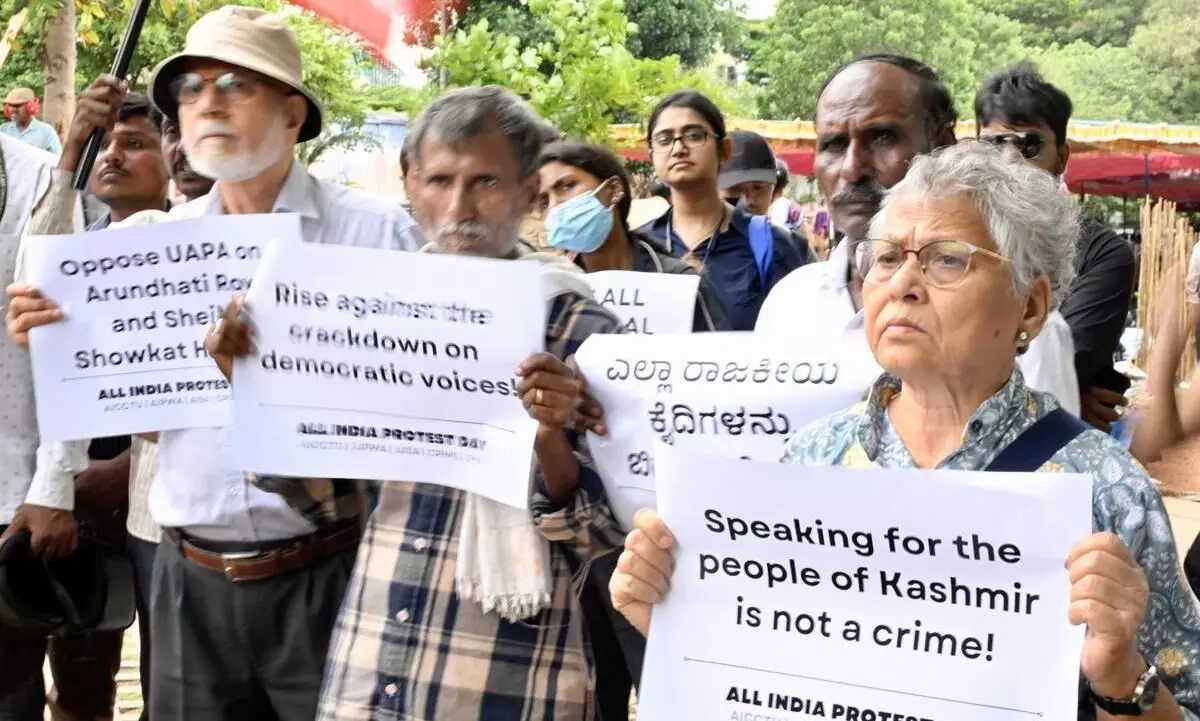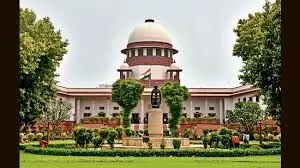
Bail is the rule; but that doesn't happen
text_fields"Bail is the rule, and jail the exception" - This pronouncement by Justice V.R. Krishna Iyer in 1977 is considered one of the fundamental precepts of Indian justice. The Constitution mandates that no one's life or personal liberty shall be taken away. Even though this is the law, due to the failures of both the administration and the judiciary, numerous undertrial prisoners are being unlawfully deprived of their freedom. There is also the basic principle of justice that no one can be considered a criminal until proven guilty. This principle is enshrined in the legal instruments of countries including India and the Universal Declaration of Human Rights adopted by the world in 1948. One of its practical forms of this is the bail granted to undertrials. However, for several years, the government has been constantly violating this principle to suppress dissenters; the helpless judiciary, on the other hand, only laments that "jail is the rule, and bail the exception"and those who lament include even the Chief Justice of the Supreme Court, who lament.
The case filed by the Delhi Police in 2020 on charges of conspiracy under the UAPA to punish those who protested against the Citizenship Amendment Act and the subsequent denial of liberty in the judiciary's approach is an example. In India, where the process itself becomes punishment, this is one of the many incidents where even mere bail is repeatedly denied. It is one of the many examples where justice and fairness are thrown aside and constitutional rights are trampled upon, and the judiciary itself endorses it. This is a case under the UAPA against peaceful protests. Nine people have been in jail for over four years. Their bail applications have been listed about 60 times until last December. In between, the hearings were postponed many times. There were even instances where some applications were adjourned for judgment. However, the two judges who heard the case did not give a verdict. One of those judges was later transferred. Thereupon the new bench started hearing the case from the beginning. Again, the case was heard and postponed. In some cases, the arguments were completed, but due to some reasons, all the bail applications were put together for consideration, which led to further delay. As it is, now there is a change in the bench hearing the cases. Now everything has to start all over again. Not only that, a judge on the new bench has recused himself from hearing this case the other day. And now a new judge has to be appointed. Everything has to be repeated from the beginning. This is the story of just the bail application, not the case. When the judiciary puts the ball back and forth, it is the rights of the applicants that are violated and their lives being destroyed. Their families and health are all shattered. If bail is the rule, who is responsible for denying justice to them? Not them, of course. Because after all, the judiciary is responsible for this. And that is not limited to this case.
One of the reasons for the violation of rights is the draconian law called UAPA. As one judge himself observed, in UAPA jail is the rule and bail is the exception. Since the sections in that law are enforced by the police and the government, the judiciary has no choice but to deny bail. Another reason is the delay in the justice system. And that is why the Supreme Court the other day said that until the prosecuting authorities are able to complete the trial quickly, they should at least refrain from opposing the bail application. The third reason is that the judiciary is unable to stand up to the discriminatory approach of the government. Human rights activists, tribal leaders, cultural leaders and activists - even the elderly among them - are languishing in jail without bail, and some die in custody. At the same time, even hardened criminals easily get bail with the connivance of the government. In all this, the fourth reason is the failure of the judiciary itself when the government exploits it. It is not just an allegation by Mahua Moitra MP in the Lok Sabha that some judges are reluctant to even grant bail to opponents of the government due to fear or temptation. There have been numerous incidents where the accused were re-arrested under new charges after being granted bail by the court which violates the purpose of the verdict. The disease is clear. The remedy is urgent. One is to release unconditionally undertrials who have spent a short term in jail. UAPA cases that make bail impossible should be subjected to expeditious judicial review. The Supreme Court had suggested the creation of a special bail law like in Britain. In any case, no citizen should be in jail without trial and bail. The judiciary has to take the lead in this.

























